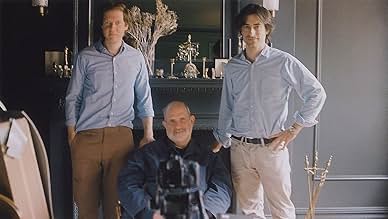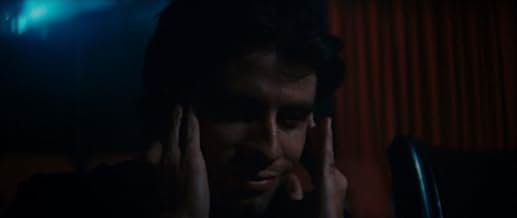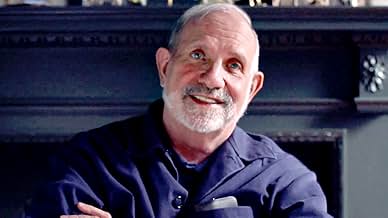IMDb RATING
7.4/10
6.5K
YOUR RATING
A documentary about writer and director Brian De Palma.A documentary about writer and director Brian De Palma.A documentary about writer and director Brian De Palma.
- Awards
- 1 win & 4 nominations total
Mark Hamill
- Self
- (archive footage)
Amy Irving
- Self
- (archive footage)
Kurt Russell
- Self
- (archive footage)
Sissy Spacek
- Self
- (archive footage)
Steven Spielberg
- Self
- (archive footage)
Angela Bettis
- Carietta 'Carrie' White
- (archive footage)
- (uncredited)
Jill Clayburgh
- Self
- (archive footage)
- (uncredited)
Clarence Clemons
- Self
- (archive footage)
- (uncredited)
William Finley
- Winslow
- (archive footage)
- (uncredited)
- …
Vincent Gardenia
- Doctor Byrd
- (archive footage)
- (uncredited)
Don Harvey
- Clark
- (archive footage)
- (uncredited)
Annette Haven
- Self
- (archive footage)
- (uncredited)
Gale Anne Hurd
- Self
- (archive footage)
- (uncredited)
Holly Johnson
- Singing Nightclub Doorman
- (archive footage)
- (uncredited)
Alan King
- Arthur Ruskin
- (archive footage)
- (uncredited)
Featured reviews
In this film, Noah Baumbach and Jake Paltrow interview one of Hollywood's most polarizing directors in Brian De Palma. De Palma has been praised for his innovative camera techniques and his suspenseful stories but has been criticised for misogyny in his films as well as seemingly ripping of many "Hitchcockian" traits. I am familiar with De Palma's work, although I haven't seen too many of his films apart from his most well known ones (Scarface, Untouchables, Carlito's Way etc.) but this documentary certainly wants me to explore more of his movies. The film is mainly just one shot of De Palma talking to the camera intercut with scenes from many of his movies. He goes into extreme detail about every single one of his movies, whilst occasionally talking about aspects of his personal life.
De Palma is a very interesting character. He's eccentric and funny but also can be arrogant sometimes. However, as a director he is a great storyteller and talks about most of his movies in extremely intricate and interesting detail e.g. how he performed certain shots to how he dealt with many of the different egos on his set. If you're someone who isn't particularly interested in film, you'll probably not find too much enjoyment in this documentary. It really is a documentary for cinephiles (such as myself) or at least people who have some interest in the art of film making. I do sometimes wish the documentary would perhaps tap into more aspects of De Palma's personal life such as his childhood or his relationship with his peers (Scorsese, Spielberg etc.). There are moments when De Palma talks about his childhood and refers to incidents that impacted his voyeuristic style but I wish the movie tapped into more moments like these. One other criticism I also have is perhaps De Palma does tend to talk about certain movies more than other ones. I would've liked for him to go into more detail about some of his more notable failures like Mission to Mars and Passion but De Palma generally just skips over these particular films.
However, if you're a movie fan or Brian De Palma fan( hell, even a detractor) you'll find great enjoyment out of this fascinating documentary about one of Hollywood's most prolific directors.
De Palma is a very interesting character. He's eccentric and funny but also can be arrogant sometimes. However, as a director he is a great storyteller and talks about most of his movies in extremely intricate and interesting detail e.g. how he performed certain shots to how he dealt with many of the different egos on his set. If you're someone who isn't particularly interested in film, you'll probably not find too much enjoyment in this documentary. It really is a documentary for cinephiles (such as myself) or at least people who have some interest in the art of film making. I do sometimes wish the documentary would perhaps tap into more aspects of De Palma's personal life such as his childhood or his relationship with his peers (Scorsese, Spielberg etc.). There are moments when De Palma talks about his childhood and refers to incidents that impacted his voyeuristic style but I wish the movie tapped into more moments like these. One other criticism I also have is perhaps De Palma does tend to talk about certain movies more than other ones. I would've liked for him to go into more detail about some of his more notable failures like Mission to Mars and Passion but De Palma generally just skips over these particular films.
However, if you're a movie fan or Brian De Palma fan( hell, even a detractor) you'll find great enjoyment out of this fascinating documentary about one of Hollywood's most prolific directors.
You know, I went into this experience thinking I what was a big fan of De Palma, but was really cool is, I knew nothing, but learned a lot.
I was expecting this movie to be all about Carrie, the Untouchables, Mission Impossible, but for those of us who De Palma became a big name for because your of the generation that group up with Hip hop artist who loved Scarface, that movie and many of his mainstream hits play an important part in this sit down interview, but a small one, as De Palma talks with great personal depth a careering touching 50 years.
He's tells the story from his perspective and it's told with an honest feel, and it gives you perfect insight on his film style. He's a guy who loves indie films for the freedom it allows but needed to prove to himself that he can make a mainstream hit. He defends his disturbing images, by revealing to us how he did not realize it was disturbed.
Though focus on his movies, De Palma does give you personal insight on his upbringing and the state of mind he was in when he made those movies (like during the early 80s when he constantly cast his then wife, Nancy Allen, which he knew as damaging to their relationship).
A few times in the film, his treatment of women in his films came up and once again this is where his honesty of what he was trying to do came up. The interview is intertwine with clips from his movies and other movies that inspire him, and I think every nude scene De Palma has ever filmed was used here. Another contemporary subject was War in which he was able to give his two cents on what's going on now by talking about the two war movies he did do.
It's a great sit down for not just De Palma fans but for film fans everywhere. The man was enjoyable to listen to for almost two hours and he told great stories about the development for his long list of film credits.
Now I have to go out and find the movies I never seen.
I was expecting this movie to be all about Carrie, the Untouchables, Mission Impossible, but for those of us who De Palma became a big name for because your of the generation that group up with Hip hop artist who loved Scarface, that movie and many of his mainstream hits play an important part in this sit down interview, but a small one, as De Palma talks with great personal depth a careering touching 50 years.
He's tells the story from his perspective and it's told with an honest feel, and it gives you perfect insight on his film style. He's a guy who loves indie films for the freedom it allows but needed to prove to himself that he can make a mainstream hit. He defends his disturbing images, by revealing to us how he did not realize it was disturbed.
Though focus on his movies, De Palma does give you personal insight on his upbringing and the state of mind he was in when he made those movies (like during the early 80s when he constantly cast his then wife, Nancy Allen, which he knew as damaging to their relationship).
A few times in the film, his treatment of women in his films came up and once again this is where his honesty of what he was trying to do came up. The interview is intertwine with clips from his movies and other movies that inspire him, and I think every nude scene De Palma has ever filmed was used here. Another contemporary subject was War in which he was able to give his two cents on what's going on now by talking about the two war movies he did do.
It's a great sit down for not just De Palma fans but for film fans everywhere. The man was enjoyable to listen to for almost two hours and he told great stories about the development for his long list of film credits.
Now I have to go out and find the movies I never seen.
For those with in interest in De Palma's films and long career, or just cinema in general, this is a highly entertaining and informative visit with one of the most interesting, controversial and eclectic American film makers of the last 50 years.
The form couldn't be simpler. Just Brian De Palma sitting in a chair telling stories about each of his films in chronological order, from his first shorts in the mid 1960s to "Passion" in 2013 – an amazing span of almost 50 years. His comments are interspersed with well chosen clips from his own work, and – when he makes a reference – those of other film-makers as well.
What makes this form work so well is that De Palma is a terrific interview subject. He's funny, thoughtful, insightful, and sometimes very entertainingly snarky. He is also tremendously honest. He saves many of his toughest criticisms for himself, analyzing with surgical precision why certain of his films could have been better, and his part in those lapses. Very few directors are willing to talk at length about choices and moments they regret, usually choosing only to blame others for artistic goals falling short. But by acknowledging his own choices that didn't work out he makes himself very human, empathetic and trustworthy as a subject. He's not interested in self-glorification as much as he is in sharing a lifetime of wisdom won by mostly hard experience (few of De Palma's films got the support and attention they deserved at the time of their release – some, like 'Scarface' only became iconic years later). And he also talks with a touching wistfulness about those films he is truly proud of that never got the support – critical, commercial or both – that they deserved.
Overall you end up with a real sense of what it's like to be tremendously talented, protean, rule-breaking film-maker over 50 years – the ridiculous highs and lows, the multiple struggles, hard times and occasional triumphs of a high-profile artistic life in the weirdness that is the American film scene.
The form couldn't be simpler. Just Brian De Palma sitting in a chair telling stories about each of his films in chronological order, from his first shorts in the mid 1960s to "Passion" in 2013 – an amazing span of almost 50 years. His comments are interspersed with well chosen clips from his own work, and – when he makes a reference – those of other film-makers as well.
What makes this form work so well is that De Palma is a terrific interview subject. He's funny, thoughtful, insightful, and sometimes very entertainingly snarky. He is also tremendously honest. He saves many of his toughest criticisms for himself, analyzing with surgical precision why certain of his films could have been better, and his part in those lapses. Very few directors are willing to talk at length about choices and moments they regret, usually choosing only to blame others for artistic goals falling short. But by acknowledging his own choices that didn't work out he makes himself very human, empathetic and trustworthy as a subject. He's not interested in self-glorification as much as he is in sharing a lifetime of wisdom won by mostly hard experience (few of De Palma's films got the support and attention they deserved at the time of their release – some, like 'Scarface' only became iconic years later). And he also talks with a touching wistfulness about those films he is truly proud of that never got the support – critical, commercial or both – that they deserved.
Overall you end up with a real sense of what it's like to be tremendously talented, protean, rule-breaking film-maker over 50 years – the ridiculous highs and lows, the multiple struggles, hard times and occasional triumphs of a high-profile artistic life in the weirdness that is the American film scene.
Brian De Palma is one of those directors whose films are very polarizing (with a few exceptions, of course). Being that he no longer works within the Hollywood establishment and his output has been drastically reduced, I guess a documentary will have to do. And boy, what a documentary! Still, the word 'documentary' doesn't really describe this film that well, since it's more like a one-on-one conversation. De Palma is very candid about his past and doesn't shy away from emphatically stating his opinions on people he's worked with and his own work. One thing that did surprise me was how little Hitchcock, his clearest influence, was brought up. Not a criticism, just an observation. Clips from VERTIGO, NORTH BY NORTHWEST, and REAR WINDOW are shown, though, in the context of techniques or stylistic features that De Palma learned from them. If anything, the range of artistic influences was much wider than I had ever realized before. Even if he never made another film, De Palma has left behind an incredible body of work that deserves serious study and consideration, and this documentary fills a void for everyone. It provides a nice retrospective for those already familiar and, for those not, a great place to start.
This is a documentary about Brian De Palma's movies and career. It's almost entirely him sitting and talking about his movies. His Hitchcockian influence is obvious to any passing fans. This is a good documentary for anyone who likes his movies. Having come up along with many young directing icons of the era, he has some good insights and stories about everything. It doesn't get too salacious but he's not really sugar-coating too much either. It's a compelling watch and a fine insight into his movies. This is basically a compilation of the best of twenty plus movie commentaries by the director.
Did you know
- TriviaPaltrow and Baumbach filmed Brian De Palma for one week in 2010, collecting about 30 hours worth of interview footage. De Palma, sitting in Paltrow's living room and talking about his career, wore the same shirt every day for continuity's sake. But the movie ended up premiering in 2015 and the director made another movie years after the interview, which explains why when he talks about Passion the viewer only hears his voice but doesn't see him talking.
- GoofsFemme fatale (2002)'s release date is incorrectly listed as 2000, both in the body of the film and in the end credits.
- Quotes
[repeated line]
Brian De Palma: Holy mackerel.
- ConnectionsFeatures Le Fantôme de l'opéra (1925)
- SoundtracksDe Palma (Main Title Theme)
Written by Nathan Johnson
Courtesy of Choplogic Music
Under license from Nathan Johnson
- How long is De Palma?Powered by Alexa
Details
Box office
- Gross US & Canada
- $165,237
- Opening weekend US & Canada
- $30,355
- Jun 12, 2016
- Gross worldwide
- $168,045
- Runtime
- 1h 50m(110 min)
- Color
- Aspect ratio
- 1.85 : 1
Contribute to this page
Suggest an edit or add missing content

































